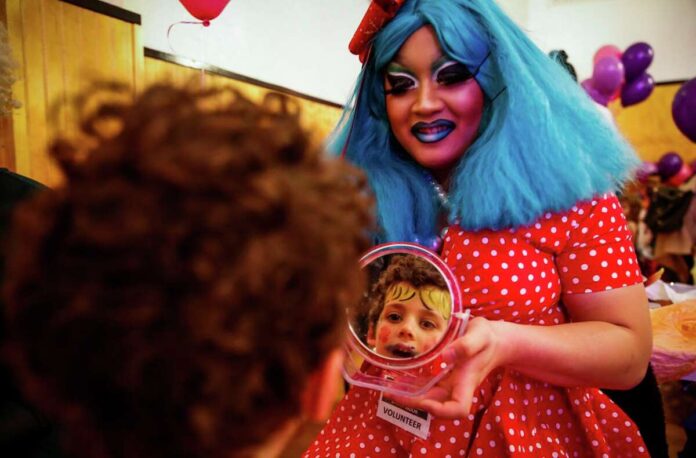This year started with a bang. The nation was treated to yet another circus sideshow which was portrayed as a vote for the new house speaker. The joke was truly on us as twenty republicans were shown holding out in a fight against McCarthy becoming speaker, only in the end, to see him win the nomination anyway. Did anyone really believe it was going to end differently? The most entertaining part was watching Matt Gaetz call McCarthy the king alligator of the swamp, then putting on a show of his own with a defiant vote for Trump, while in the meantime Trump himself, endorsed McCarthy. What a joke. The biggest problem with this is the attention it gets from the American people. The federal government is not supposed to play such a central role in our lives. Not compared to what happens at the local level. We should be far more concerned with our governors, mayors, and city councils than the federal government. Somewhere along the line, however, the role of the federal government changed, and for the most part, this change was accepted by the American people. The big talking point of the latest fiasco was that a speaker needed to get elected so they can get on doing the work of the American people. What work? The federal government is supposed to secure our borders, protect our natural rights, coin our money and handle foreign affairs. If things were going as they were intended, we would barely be aware of the federal government’s existence, let alone be treated to the constant barrage of endless propaganda designed to define what we should be thinking about. Instead, we have a federal government that is the largest employer in the nation, controlling nearly every institution that has a direct impact on our lives. The most concerning, and perhaps this may explain why Americans place such importance on the workings of the federal government, is the control they have over education. Public schooling has been used as a tool of social change for more than one hundred years. Much of what we see occurring in education today isn’t new, or the beginning of an agenda, it is the result of or the culmination of something that started decades ago. It is great to see parents showing up at school board meetings, and demanding accountability from the school boards over the rampant, sexually explicit material being shown to our kids. Unfortunately, they are merely reacting to a school system whose very existence is meant to incrementally transform our nation from one of freedom to a “social democracy.” Changing our nation has little to do with the circus sideshow we watched on Fox News and CNN this month and much more to do with ripping the control they have over schooling from their deprived, power-hungry minds.
Education has become so normalized in everyday life that no one really bats an eye at it. Nothing will change that like a school being exposed for inviting a drag queen to perform at an elementary school function while declining to tell the parents, but I digress. Parents today are looking at what is happening while referencing the time they were in school. Sure, as a fifty-year-old I can attest that I was taught there were only two genders, the trees took in carbon dioxide and produced oxygen and the United States was the victor in both world wars. I certainly do not remember any discussions concerning homosexuality, or the idea that gay children are oppressed victims. Parents who went to school in the 1990s would have seen an introduction to this idea. The promotion of homosexuality was gradually introduced under the guise of aids education. Once this gained acceptance the agenda continued to incrementally advance to what we have now. A school system that actively encourages your children to believe the gender binary is oppressive and it is perfectly fine for boys to call themselves a girl and use the girl’s bathroom. The bigger point being made here is that these changes are gradual, almost generational in their implementation that they go largely unnoticed. Until Steven comes home and says his name is Sally and he has joined the girl’s soccer team, and you as the parent, are a bigot for opposing his true identity.
The part that parents are missing today is the role these same processes played in the formation of their worldviews and behaviors. Anyone who attended school since 1969 was subject to the use of “operant conditioning” as a behavior modification technique. The U.S. Department of Health, Education, and Welfare released a document called Reducing Problem Behaviors: An Operant Conditioning Guide for Teachers in 1969. Operant conditioning is simply the idea that desirable behaviors can be reproduced through the use of rewards and punishments.
“In its simplest form, operant conditioning involves the systematic use of
consequences to strengthen and weaken behaviors under specified stimulus
conditions. Operant behavior is strengthened by some consequences called
reinforcers and weakened by other consequences called punishers. Withdrawal
of reinforcing consequences will also weaken behavior. This procedure is called extinction.”
Based largely on stimulus-response theory, operant conditioning works off the idea that human beings are social creatures who derive much of their own value from their group interactions, or how they fit in with others. B.F. Skinner, a psychologist who took the ideas of operant conditioning to new heights, states in Beyond Freedom and Dignity that the fear of approval or disapproval among one’s peers is a tool of social control more powerful than a full-blown police state. This is to say then, that a child’s behavior and or beliefs, can be largely influenced by the environment they are in and how accepted the subject matter is among their peers. In other words, if transgenderism is being presented to first graders as “right and moral,” and it is accepted by most, creating an atmosphere of disapproval towards naysayers may very well influence their attitudes. We all know what is like to feel left out. No one likes it. This is basically the idea behind operant conditioning. Manipulating the environment to produce desirable behaviors. While the official document mentioned above was released by the government in 1969, the idea of using such methods in education goes back much further.
John Dewey, known as the father of modern education, was a Fabian Socialist, which is to say socialism should be incrementally implemented through social action and the vote as opposed to by force. Dewey was also instrumental in bringing the Critical Theory philosophers of The Frankfurt School to their new home at Columbia University, where he taught as a professor. To say he is the father of modern education is to acknowledge his belief that education itself, should be the driving force behind social change and that schools should be used to transform society from individualistic values to collective ones. He writes in his seminal book on the subject, Democracy, and Education that individual rights are not conducive to a productive society because what we do is largely dependent upon the approval or condemnation of others around us. In other words, individuality doesn’t really exist because we all share a “social environment” where our actions affect other people. Dewey also writes, and I feel this is perhaps the most important statement in describing the purpose of the public school itself, and how old this agenda is, that “the business of the school environment is to eliminate, so far as possible, the unworthy features of the existing environment from influence upon mental habitues. It establishes a purified medium of action. Selection aims not only at simplifying but at weeding out what is undesirable.” What does that mean exactly? Well, if Marxism began establishing an influence in the west as early as the 1920s, which many believe it did, and John Dewey, a known Marxist wrote Democracy, and Education in the 1920s, it is safe to take him at his word and work from the premise that very purpose of schooling is to make good little socialists of us all. What we are seeing today, as noted earlier, is the culmination of an effort to create an environment inducive to creating the type of citizen that will accept without question, the direction we are currently going.
While there is certainly a cognizant point to be made concerning people’s resistance to the current agenda, it doesn’t change the fact that the school environment itself, as early as the first part of the twentieth century, was designed to weed out aspects of our society that the Marxist left found undesirable. The school system didn’t suddenly become Marxist when Obama, for example, was elected president. The school system we have been comfortable with our entire lives was created by a Marxist. That is why Dewey is known as the father of modern education. It started out with resistance to capitalism. In later years we began seeing young children advocate for socialist ideals, while also discrediting American institutions such as the family, and advocating for transgenderism. Consider the point made earlier about Dewey bringing the Frankfurt school philosophers to Columbia university. The whole purpose of Critical Theory is to challenge everything seen as normal, as oppressive, and in need of change. Everything from normative gender theory to capitalism is a vehicle of oppression to the left. To say then that the school system should weed out undesirable behaviors and mental habitudes is to say that the school system should be weeding out anything that goes against the Marxist, dialectical view of human nature. As I mentioned in my book A Critical Look at CRT in Education, Research and Social Policy, much of Critical Theory was actually put in place after the Frankfurt School members arrived in America. They believed that our societal norms contradicted our ideas of freedom, and developed their ideas to challenge our traditional morality.
Showing up to school board meetings is a great start. To really change the way we educate our children, however, requires a deeper understanding of the purpose of public schooling. It didn’t suddenly become the monster it is now, ten years after you graduated and put your firstborn child in kindergarten. It has been a gradual, incremental approach to creating the society we see emerging today.

























